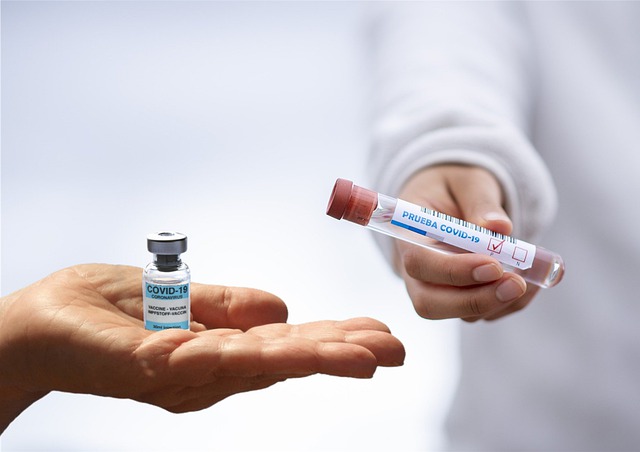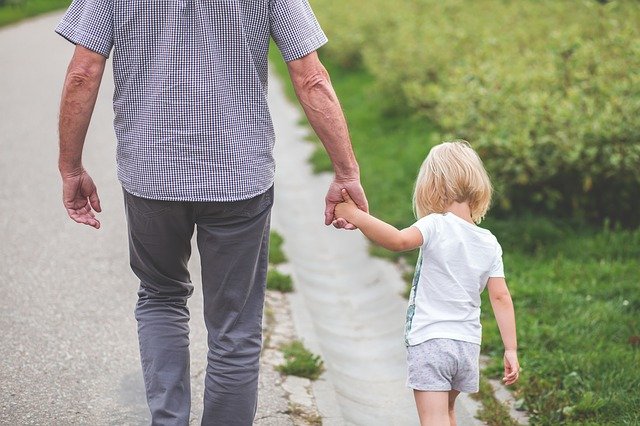
For those of us who have had severe allergic reactions and/or children who have severe allergies, we may find the news surrounding COVID-19 vaccines quite unsettling, especially with reports of anaphylaxis being reported among health care workers who have received the vaccine from the first few rounds of vaccinations. To gain a better understanding of the benefits and potential risks of the vaccines, we have sat down with world-renowned allergist and immunologist Dr. Sanjeev Jain, founder of Columbia Allergy, with some of our most pressing questions.
Can breastfeeding moms take the COVID vaccine? How about those who are breastfeeding children with allergies?
There is a contraindication for use of the Moderna or Pfizer COVID-19 vaccine in individuals with known anaphylaxis to any component of the vaccine. If a breastfeeding mother or the breastfeeding infant has a known allergy to a component of the vaccine, the mother should not receive the vaccination at this time, or should meet with an allergist to discuss ways to safely receive this vaccine.
Are children or adults with severe allergies considered high risk for COVID?
Although severe allergies are not listed as high-risk comorbidity, we do recommend that patients with severe allergies take all the recommended COVID-19 precautions from the CDC seriously. Adults and children with severe allergies have overactive immune systems and may experience symptoms that overlap with COVID-19 symptoms. The only way to be completely sure that symptoms are due to allergies and not COVID is to get tested for COVID.
In addition, if a patient is prone to seasonal or food allergies, it would be best to prophylactically manage their allergy symptoms to avoid experiencing a flare. Adults and children with environmental allergies can start taking a daily non-sedating antihistamine such as Zyrtec or Claritin during their peak allergy season. If you know what the person is allergic to, do your best to reduce their exposure to the known food or environmental allergens to limit the risk of developing symptoms. If an adult or child suffers from seasonal or year-round allergies or other allergy symptoms and does not know what they are allergic to, we recommend seeing an allergist to get tested to better manage their symptoms during this stressful time. Individuals with severe allergies often also have asthma, and uncontrolled asthma may increase the risk of complications from COVID-19.
The vaccines have been approved for 16 and up only at the moment. Are there any special considerations parents of children younger than 16 should make while the vaccine is being rolled out?
At this point, the vaccine can not be administered to children under the age of 16 even under emergency circumstances. If you have a child under the age of 16, we encourage you to read updates from Moderna and Pfizer as they conduct research in the age 12-and-up age group. These updates will provide new information about vaccine safety in this age group, potential adverse effects, the predicted number of doses required, and how far apart we can expect these doses to be. Staying up to date on this information as it becomes available can put parents in a better position to make an informed decision when the vaccine becomes available for children under 16.
When do you estimate a vaccine for children would be ready?
Both Pfizer and Moderna have started clinical trials for subjects as young as 12 years old. During these trials, researchers need to determine which doses, dosing intervals, and the number of doses will be most effective in the pediatric population. Children’s body composition is different and their immune systems function differently from that of adults, so adjustments will need to be made from the existing approved adult COVID-19 vaccines. It will likely be months before the vaccine is ready for the 12-and-up age groups and even longer for children under 12. News reports have suggested that we can hope for vaccines for children to be approved by summer or fall of 2021, but seeing that the research process is just now beginning for children 12 and up, it is hard to predict the timeline.

Are there anything (e.g. risks, concerns, benefits) parents need to know about the vaccine for children with allergies, eczema, asthma, and/or autoimmune disorders?
For how long will the vaccine remain effective?
At this time, we do not know for how long the COVID-19 vaccine will remain effective. Earlier this month, Moderna provided an update that immunity was still found in all participants 119 days after their first dose and 90 days after their second dose. As updates from the clinical trials are published we will gain a better understanding of what to expect when it comes to how long the vaccine will stay effective. Some factors that can affect the duration for which the vaccine is effective are whether or not both doses of the vaccine were received, how long someone waits between receiving the first and second dose, and whether the virus mutates.
If I am vaccinated, is it possible for me to infect my child or someone else not vaccinated if I come into contact with COVID?
Vaccines work to offer protection against a specific virus by training components of your immune system to fight off the virus to prevent the virus from replicating in your body, should future exposure to the virus occur. It typically takes a few weeks for the body to build up immunity to the virus after the vaccination has been injected. For this reason, it is important to remember that if a person is exposed to COVID-19 and becomes infected with the virus before the body has developed immunity, they can develop symptoms and pass the virus on to others. The Pfizer BioNTech and Moderna COVID-19 vaccines are both 2-step vaccinations, so it would be best to assume that you still have the potential to contract and spread COVID-19 until both injections have been completed and your body has had enough time after the second injection to develop immunity. It is currently not proven that even after the development of immunity one will not be contagious after exposure to the virus, but it is highly likely that immunized individuals will not transmit the infection.
If someone has an allergic reaction after taking the vaccine, does that render the vaccine useless for them?
If someone has an allergic reaction after taking the COVID vaccine and prevents them from getting the second injection, the effectiveness of the vaccine could be negatively affected. If you develop an allergic reaction after receiving the vaccine, we recommend that you follow up with an allergist to determine the specific source of your reaction. Depending on the circumstances surrounding your reaction, your allergist can help to determine whether or not adequate immunity was achieved. Theoretically, an allergic reaction does not reduce the efficacy of a vaccine.
Is there any way we can minimize the risk of anaphylactic reactions to the Pfizer-BioNTech and Moderna COVID-19 Vaccines?
For more information on allergy testing and desensitization treatment for the Pfizer-BioNTech and Moderna COVID-19 Vaccines, make an appointment at your nearest Columbia Allergy location.














